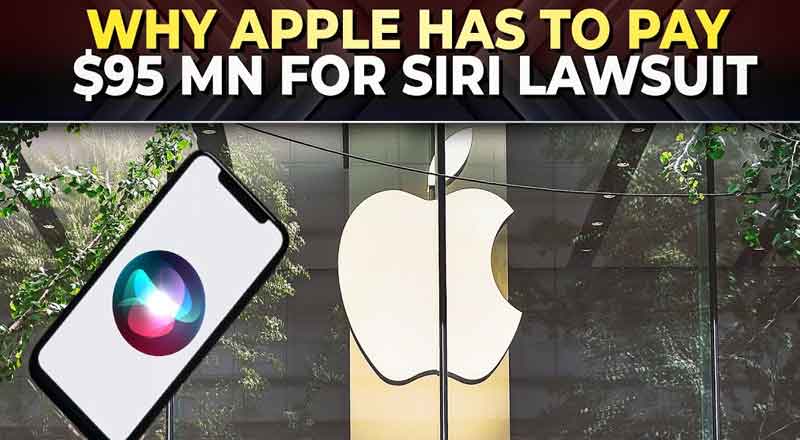In January 2025, Apple agreed to pay $95 million to settle a class-action lawsuit over privacy concerns linked to its Siri voice assistant. The lawsuit alleged that Apple recorded and stored user interactions with Siri without explicit consent, including instances when Siri was not actively in use. The claims suggested a violation of privacy expectations and a lack of transparency in Apple’s data handling practices.
Users accused Apple of breaching trust by collecting sensitive voice data without proper disclosure. Despite the severity of the allegations, Apple denied any wrongdoing but agreed to implement changes in how it handles Siri-related data. The settlement compensates affected users while aiming to address concerns about the company’s privacy practices.
This case highlights ongoing tensions in the tech industry, where innovations in AI and voice technology often clash with user demands for privacy and transparency. While Apple has long positioned itself as a leader in data protection, the lawsuit underscores gaps between its messaging and operational realities.
The Siri settlement reflects increasing global scrutiny of tech companies’ data management practices. Regulatory bodies, activists, and users alike are demanding greater control and clarity regarding how personal information is collected, stored, and used.
For Apple, the case serves as a reminder that even industry leaders are not immune to criticism or legal challenges. The company’s decision to settle, despite denying wrongdoing, points to the growing importance of public trust in maintaining its reputation.
The significance of this settlement extends beyond monetary compensation. It signals a broader shift toward ethical data practices, emphasizing transparency, user consent, and accountability. As regulators worldwide tighten their oversight, tech companies must adapt to ensure compliance while preserving consumer trust.
Apple’s proactive steps in addressing privacy concerns, including modifying Siri’s data-handling processes, demonstrate its awareness of these evolving expectations. However, cases like this expose vulnerabilities and the need for continuous improvement.
While Apple’s $95 million settlement provides relief to affected users, it also highlights the mounting challenges tech companies face in balancing innovation with privacy. As scrutiny intensifies, companies must go beyond compliance, embedding transparency and ethics into their core practices. For Apple, this settlement is both a cautionary tale and an opportunity to solidify its commitment to user privacy in an increasingly data-driven world.





